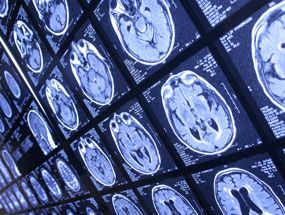Article
Brain Abnormalities from Concussion Exist Months Afterwards
Author(s):
Although the symptoms of concussions are significantly reduced after four months, abnormalities in the brain remain are still seen for months after the concussion.

A new study published in Neurology found that people who suffered concussions had more problems with memory and thinking skills, more symptoms of depression and anxiety, and more physical problems, including headache and dizziness, two weeks after injury compared with subjects who did not have concussions. Four months after concussions, the investigators found that the symptoms of those whose who had concussions were significantly reduced.
However, diffusion tensor imaging scans showed that those who had concussions had more abnormalities in the gray matter in the frontal cortex region of both sides of the brain, and that these abnormalities could still be seen four months after concussion.
The study followed 100 people, of whom 50 had had mild concussions and 50 did not. In other ways the groups were similar.
Lead author A.R. Mayer, PhD, of the University of New Mexico in Albuquerque’s Mind Research Network, said that cytotoxic edema may explain the brain abnormalities seen in the scans. This condition occurs when fluids in and around the brain change or there is a change in shape in the glial cells in response to damage.




